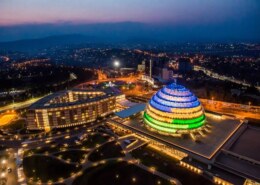Living in Rwanda, like any move to a new country, may bring about cultural differences and potential culture shock. While Rwanda is known for its warmth and hospitality, it’s essential to be prepared for some aspects of daily life that might differ from what you’re accustomed to. Here are some potential cultural shocks you may encounter:
Language Barrier: While Kinyarwanda is the official language, English and French are also widely spoken. However, you may still encounter language barriers, especially in more rural areas where Kinyarwanda is predominant.
Punctuality: Rwandans often have a more relaxed approach to time, which can be different from cultures that value punctuality. Meetings and appointments might not always start on time.
Greeting Etiquette: The traditional Rwandan greeting involves a handshake, but it’s important to note that physical contact is limited in some situations due to cultural norms, like not touching elders’ hands or heads.
Cultural Norms: Rwanda has a rich cultural heritage, and certain behaviors, such as dressing modestly and respecting elders, are highly valued. It’s essential to familiarize yourself with these customs and show respect.
Food Preferences: Rwandan cuisine is diverse, but you may encounter dishes and ingredients that are different from what you’re used to. Local foods include plantains, cassava, and a variety of stews.
Traffic and Transportation: The traffic situation in Kigali, the capital, can be congested, and road conditions may vary outside the city. Patience is key when navigating transportation.
Infrastructure and Services: While Rwanda has made significant progress in infrastructure development, you may still encounter occasional power outages or interruptions in services.
Conservation and Cleanliness: Rwanda is known for its commitment to cleanliness and conservation. There are strict regulations against plastic bags, and there’s a strong emphasis on maintaining a clean environment.
Religious Observance: Rwanda is predominantly Christian, and Sundays are often observed as a day of rest and religious activities. Expect some businesses and services to be closed or have limited hours on Sundays.
Cultural Celebrations: Rwanda has various cultural celebrations and festivals throughout the year. Participating in these events can be a great way to immerse yourself in the local culture.
Social Hierarchy: Rwandan society can have a hierarchical structure, with respect for authority and elders being crucial. Understanding and respecting this hierarchy is essential for harmonious interactions.
To ease the potential culture shock:
Learn the Language: Even basic knowledge of Kinyarwanda or French/English, depending on your location, can go a long way in building connections and understanding local culture.
Be Patient: Embrace the slower pace of life and adapt to the local sense of time.
Cultural Sensitivity: Educate yourself about Rwandan customs and norms, and be respectful in your interactions.
Try Local Foods: Sampling local cuisine can be an enjoyable way to connect with the culture.
Stay Informed: Keep up with local news and events to better understand the context and culture.
Build Local Connections: Engage with locals, make friends, and seek their guidance when needed. They can provide valuable insights and support.
Remember that culture shock is a natural part of adapting to a new environment. Over time, with an open mind and a willingness to embrace the culture, you can build a rewarding and enriching life in Rwanda.

